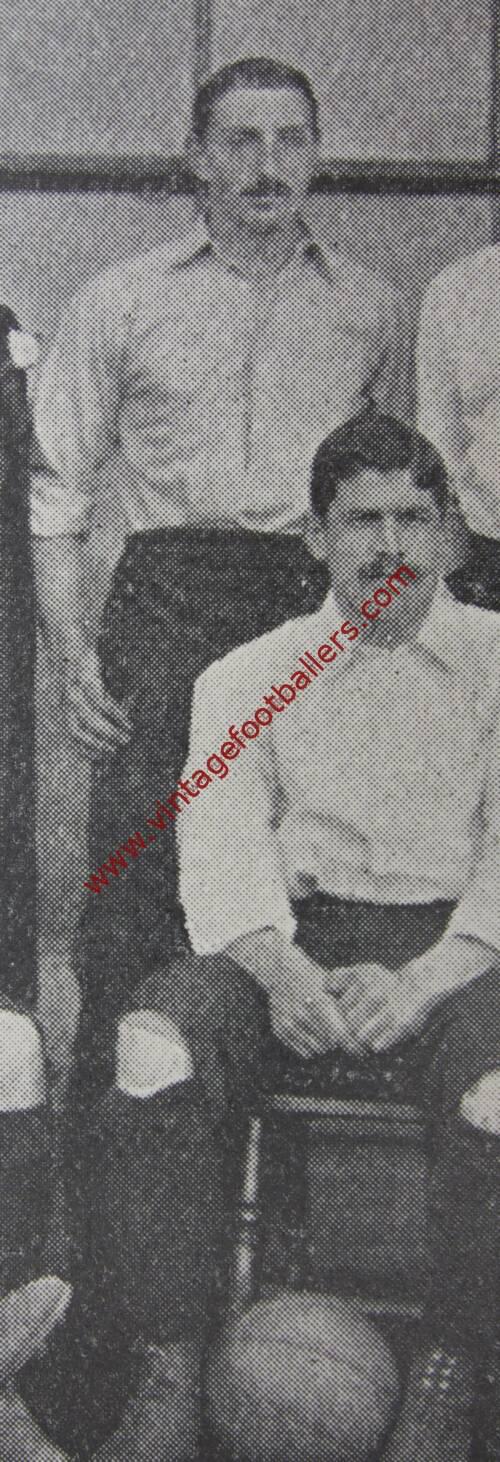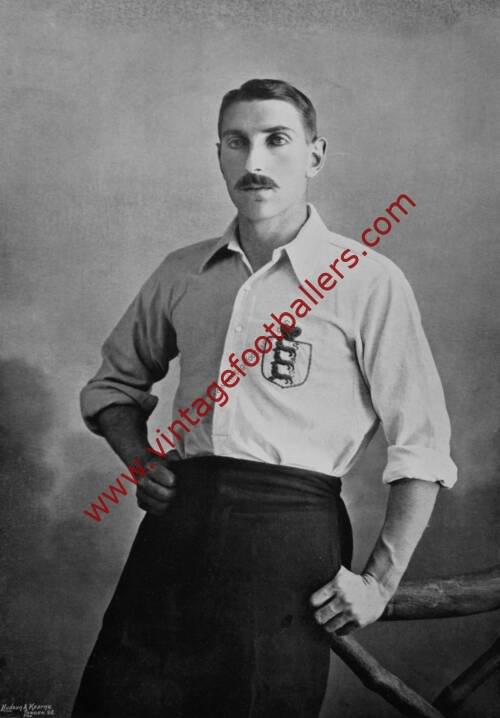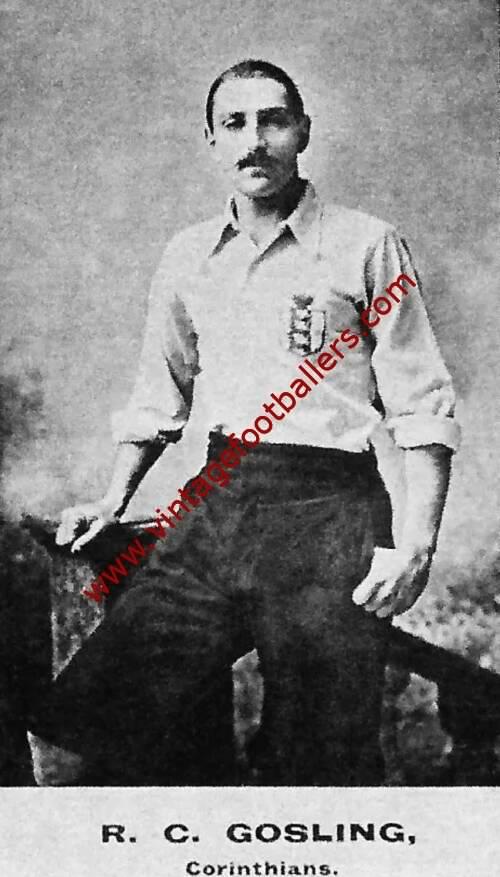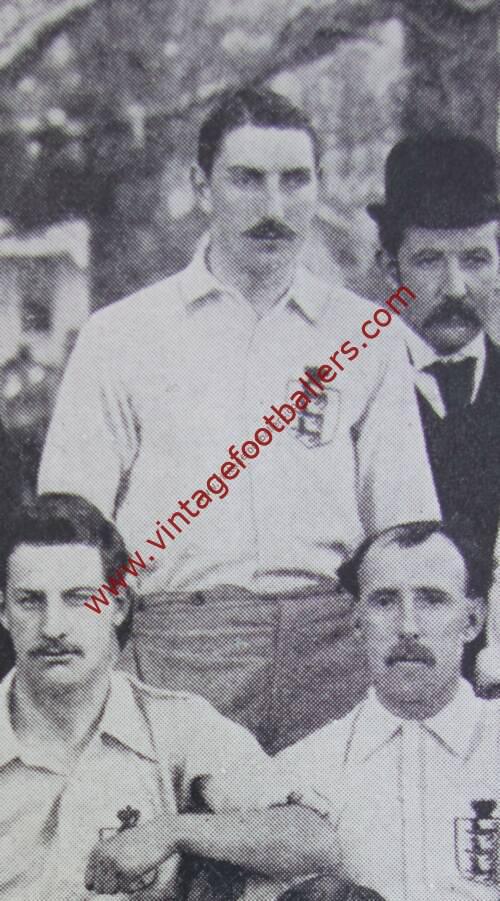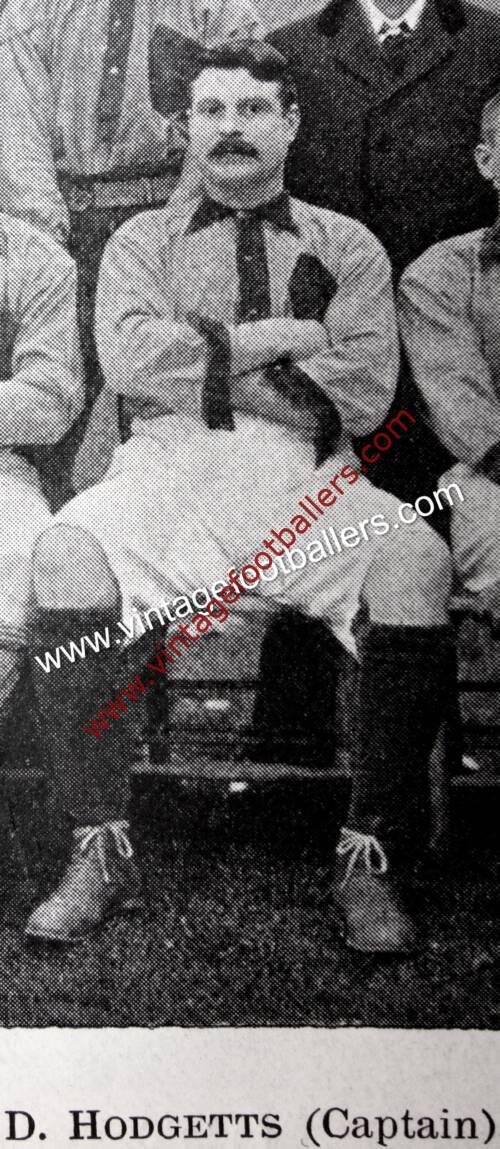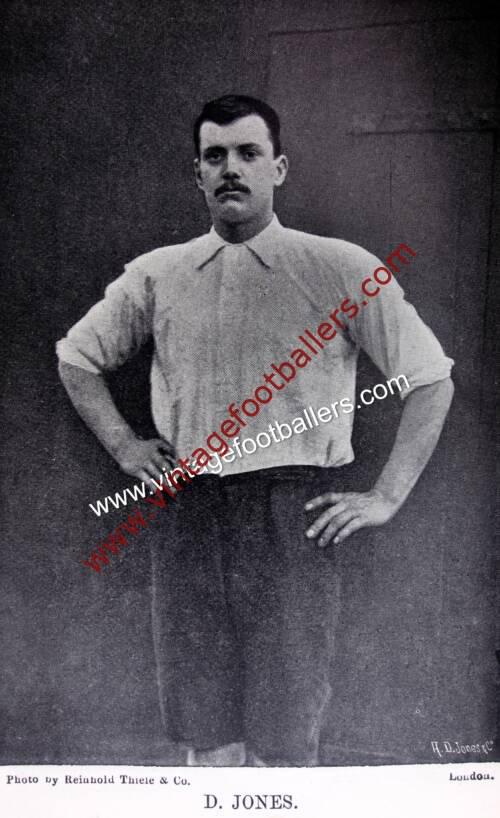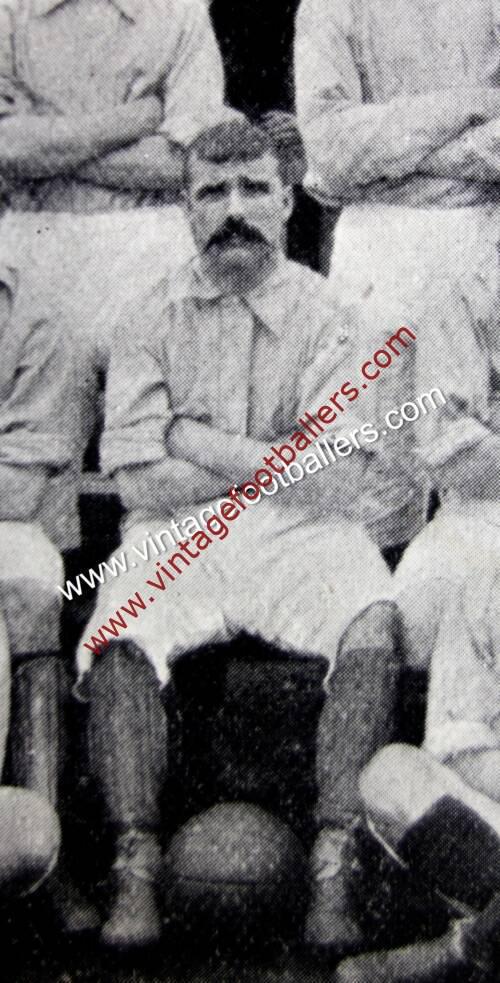Please choose your photo size from the drop down menu below.
If you wish your photo to be framed please select Yes.
Note: 16″x 20″not available in a frame.
Images can also be added to accessories. To order please follow these links
£8.95 – £49.95
Please choose your photo size from the drop down menu below.
If you wish your photo to be framed please select Yes.
Note: 16″x 20″not available in a frame.
Images can also be added to accessories. To order please follow these links
Robert Cunliffe Gosling, born in Farnham, Essex on 15th June 1868, was educated Eton, where he like his five younger brothers excelled at football and cricket. Gosling progressed to Cambridge University, where he went to Trinity College and gained his Blue at football in the Varsity match of 1890 and also won a Blue at cricket.
Gosling also appeared for Old Etonians and The Corinthians at football. For The Corinthians he scored 14 goals in 49 appearances between 1889 and 1899. He won his first England cap against Wales at Wrexham in a 2-0 victory in March 1892, scoring his first goal against Scotland on his next cap in April 1893. He won a total of 5 caps for England through to April 1895 and scored two goals, and showed himself – according to his contemporary G.O. Smith – one of the outstanding international forwards of the day: a shade less talented than Steve Bloomer, perhaps, but far less inclined to keep the ball, and so easier to play with.
Described by Sir Frederick Wall, the long-serving Secretary of the Football Association, as “the richest man who ever played football for England”, Gosling was the scion of a wealthy Essex family and the oldest of seven brothers (and one of 14 children), four of whom played cricket for Eton against Harrow. He was, recalled the early sportwriter JAH Catton (“Tityrus”), “the most aristocratic-looking man I ever saw”, a view concurred in by his England international colleague C.B. Fry, who described him as “the best-looking man of my acquaintance” and one of the players whose presence in the Corinthians’ side contributed to “their reputation up North as a team of toffs”.
Gosling’s bearing lent him an imposing presence on the football field. He looked, Wall recalled, “every inch the high-born…
Edward Grayson, the historian of the early amateur game, was another admirer of the England captain. “Well over six feet in height,” he wrote “and weighing nearly thirteen stone, he left his mark both at inside-right and inside-left, with his speed, passing and shooting from all angles that underlined the dribbling skill he had acquired from Eton’s Field Game. His unselfishness and finesse no doubt gave him the wonderful knack of knowing how to keep his line together, a quality which England’s selectors have unhappily found wanting in nearly all the inside-forwards with whom they have experimented since the Second World War. Gosling’s play… was the very refinement of football, and effective football, too. Had any other club than Old Etonians claimed his service… he would have been exalted at football in the manner reserved by cricket idolaters for Lionel Palairet, Reggie Spooner and Victor Trumper.”
Gosling was, moreover, invariably sportsmanlike in his approach to the game, and entirely lacked malice. It was this quality that led “Nudger” Needham, the Sheffield United and England professional, to describe him as “a heavy, but a gentle player”.
Gosling played first class cricket for Cambridge University and also for Essex between 1888 and 1896. and also played for Eton Ramblers and I Zingari, the latter of which was his initiative. In total he played in 26 first class matches, batting right handed he averaged 13.58, with a highest score of 61, his only half century. He also held 18 catches in those games.
| Weight | 0.25 kg |
|---|
